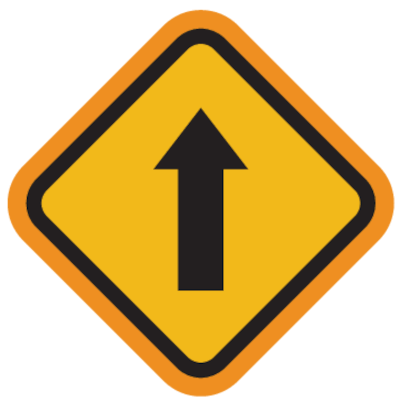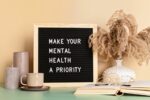In our fast-paced digital age, mental health apps have become valuable tools for self-care and support. They offer convenient access to resources, coping strategies, and a sense of community. However, like any tool, it’s essential to use them responsibly to maximize their benefits. In this guide, we’ll explore how to use mental health apps in a way that’s healthy, helpful, and mindful of your well-being.
Why Responsible Use of Mental Health Apps Matters
Mental health apps can be incredibly beneficial, offering a wide range of features, from mood tracking to meditation exercises. However, responsible use matters for several reasons. First, overuse or dependency on these apps may hinder genuine human connections or professional help. Second, not all mental health apps are created equal, and some may not be suitable for your specific needs. Lastly, privacy and data security are crucial aspects to consider, as the information you share on these apps can be sensitive. Therefore, using them responsibly ensures that you get the most out of them while safeguarding your mental well-being.
Tip: Think of mental health apps as a supportive tool in your mental wellness journey, not a replacement for professional advice when needed.
Using Mental Health Apps Responsibly: Tips and Insights
To use mental health apps responsibly:
- Set Healthy Boundaries: Just like with any technology, it’s important to set boundaries. Use these apps when you need support or self-reflection, but avoid excessive use or relying solely on them for your mental well-being. Balance is key.
- Choose Trusted Apps: Before downloading an app, research it. Read reviews, check the credentials of the creators, and ensure that your data will be handled securely. Not all mental health apps are equal, so choose wisely.
- Privacy Matters: Pay attention to the app’s privacy policy. Understand how your data will be used and shared. Opt for apps that respect your privacy and confidentiality.
- Combine with Professional Help: Mental health apps can be a great complement to professional therapy but are not a substitute for it. If you have a mental health condition, consult with a mental health professional for a personalized treatment plan.
- Be Mindful of Triggers: Some content in mental health apps may be triggering or harmful to certain individuals. Be aware of your sensitivities and avoid content that may negatively impact your mental health.
FAQ

Can mental health apps be as effective as in-person therapy?
While mental health apps can provide support and tools for self-care, they are not a replacement for in-person therapy, especially for complex or severe mental health issues.
Are there age restrictions for using mental health apps?
Many mental health apps have age restrictions. Some are designed for adults, while others cater to a younger audience. Be sure to choose an app suitable for your age group.
What are some signs that you might be using mental health apps unhealthily?
Signs of unhealthy use may include excessive reliance on the app, neglecting in-person social connections, or experiencing increased anxiety or stress due to the app’s use.
Can I trust the data security of mental health apps?
It’s crucial to research the app’s data security and privacy policies. Some apps have strong safeguards in place, while others may not prioritize data protection.
How can I find a mental health app that suits my needs?
Research and read reviews to find an app that aligns with your specific mental health needs and preferences. Consider consulting with a mental health professional for recommendations.
Understanding App Ratings and Reviews
One important aspect of responsible use is understanding how to interpret app ratings and reviews. Many mental health apps are available, but not all are created equal. Explore how to evaluate the credibility of app ratings and user reviews. Learn to distinguish genuine feedback from potential biases and understand how user experiences can vary.
The Role of Community and Peer Support
While the article touches on the importance of balancing technology with human connections, this section can delve deeper into the role of community and peer support within mental health apps. Discuss the benefits of interacting with like-minded individuals, sharing experiences, and learning from each other’s journeys. Highlight the importance of a supportive and empathetic digital community.
Data Security: Protecting Your Privacy
While the main article briefly mentions data privacy, this section can provide a comprehensive guide on how to protect your data while using mental health apps. Discuss the importance of reading privacy policies, managing permissions, and using secure passwords. Provide tips on safeguarding your personal information while benefiting from these apps.
Using Apps to Track Progress and Set Goals
Mental health apps can be valuable tools for tracking your progress and setting goals. Explore how to utilize these features effectively. Discuss the benefits of setting realistic and achievable goals, using app features for tracking mood and habits, and how this can positively impact your mental well-being.
Avoiding App Dependence: Signs and Solutions
Mental health apps are designed to provide support, but some individuals may become overly reliant on them. Explore the signs of app dependence and provide solutions for individuals who may find themselves using these apps as a crutch. Discuss how to strike a balance between using the apps for self-care and knowing when to seek professional help when necessary.
Mental health apps can be powerful tools for self-improvement and well-being, but their responsible use is essential. Set boundaries, choose apps wisely, prioritize your privacy, and always consider professional help when needed. With these guidelines, you can harness the benefits of mental health apps while safeguarding your mental and emotional health. Remember, they are here to support you, not replace the human connection and expertise of mental health professionals.
- Transform Your Health with Medford Medical Weight Loss Program - June 9, 2025
- A Chat with Nate and Mika, Christian Wedding Photographers - July 18, 2024
- Ultimate Guide To Playing Online Casinos - May 27, 2024








